Something not altogether good was brewing in direct selling in late 2019. The Direct Selling Association reported flat-line global sales performance of $35.2 billion, down slightly from 2018. China’s 100-day reviews of nutritional products halted companies from selling in China, surprising everyone. Continued compliance pressures in China clearly stressed sales in the channel. The domestic regulatory environment brought new challenges as well. And for many companies, sales just weren’t where they needed to be for continued market expansion. Pressure everywhere was building, but no one could foresee what was around the corner.
C-suite strategic planning, course corrections, realignment of corporate spending, new compensation structures, and the like were underway throughout the industry when pandemic struck in early 2020. COVID-19 could have compounded lingering 2019 circumstances, but that is not what happened for these seven direct selling companies.
With the benefit of time and distance, 2020 sales numbers and some hindsight, these industry leaders take a short, retrospective look inside their companies during a year like no other. In so doing, they help the direct selling industry re-think crises while telling the stories of how their teams met disruptive challenges and leveraged 2020’s new business reality to create a renewal that re-energized their field organizations and helped solidify their growth trajectories for 2021 and beyond.
COVID-19 could have compounded lingering 2019 circumstances, but that is not what happened for these seven direct selling companies.
These industry leaders take a short, retrospective look inside their companies during a year like no other.
Herbalife Nutrition
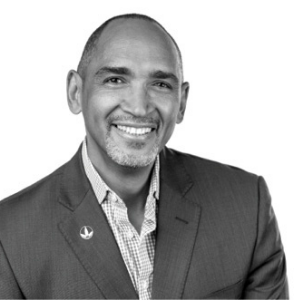
Founded / 1980
Top Executive / John Agwunobi, Chairman & CEO
Products / Personal Care & Wellness, Food & Beverage, Cosmetics
Herbalife Nutrition plotted a strategy more than three years ago to continue the development of high-quality, science-based products that leverage global consumer trends and local preferences. Simultaneously, they’ve provided their distributors with the tools and tech necessary to efficiently run their businesses, all while focusing on world-class training and education that creates the Herbalife “distributor difference” in terms of organizational leadership and customer service.
Herbalife headed down this familiar and fortuitous path as they rang in 2020. When the challenges and opportunities of the next 12 months were behind them, theirs was an unprecedented year.
“2020 was our best year ever. Our full-year 2020 results of 14 percent net sales growth exceeded our pre-pandemic expectations,” John Agwunobi, chairman and CEO, says.
Demand for Herbalife’s nutrition products, combined with the entrepreneurial spirit and tenacity of its field of distributors, led to 2020’s record sales. But the strength of this distributor base is not new. In fact, they delivered year-over-year net sales growth in nine of the company’s top 10 countries during Q4 2019.
“One thing that is truly special about Herbalife Nutrition is the way our staff and distributors come together in the face of a challenge,” Agwunobi says.
That was, perhaps, never clearer than during 2020.
It didn’t take long for Herbalife to shift their thinking in a pandemic-driven world. A series of quick decisions required employees to work from home where it was feasible, instituted safety measures at factories and distribution centers, partnered them with suppliers to ensure continued production, and leveraged relationships with technology providers to increase capacity so they could stay connected with each other and with distributors around the world.
“Once we addressed the critical short-term situation, we began to think more long-term. We shifted to a completely virtual environment for our distributor events around the world, considered how we might leverage those events to motivate and inspire distributors who may not otherwise have been able to attend and continued to focus on our proven strategy,” Agwunobi says.
Every decision they made had the health and safety of their distributors and employees at the forefront. Virtual meetings and trainings of all sorts replaced in-person gatherings, online ordering and take-out replaced in-person nutrition club consumptions, and online workouts with distributors and experts replaced exercising in fit clubs and other locations.
But the largest virtual undertaking was their annual Honors event for 5,000 top distributor leaders. In a matter of weeks, during the early days of the pandemic, Herbalife engaged a production company to help them take the event virtual, and they set about leveraging the potential tied to this new digital business reality.
In the end, Agwunobi says, “We have been able to reach approximately two and a half times the number of distributors with our virtual events than we did when we held them in person.”
Keeping up with product demand as sales soared, however, did present its challenges. But Agwunobi says Herbalife’s second-to-none operations team continued to supply distributors with products with little or no disruption.
The events of the past year have confirmed several things for Herbalife, not the least of which is the dedication, passion, and innovative spirit of its distributors and employees, who offered up flexibility, resiliency and can-do attitudes throughout 2020.

“During this most challenging time, our employees and distributors came together to support their communities and each other. Whether it was providing good nutrition to frontline workers, donating products and resources to feed those in need, or simply checking in on fellow teammates, our care for others was at the forefront of our response. I’m extremely proud to say that helping others is the hallmark of our company,” Agwunobi says.
Now, they also more thoroughly understand the important role Herbalife plays in the daily lives of millions of people. They were reminded over and over in 2020 that providing quality nutrition products to help people become healthier and offering a business opportunity that can generate supplemental or full-time income for those wanting to create their own businesses changes lives and improves communities all around the world.
“We have always thought of ourselves as leaders in the industry. Throughout 2020, I think we have proven that is true,” Agwunobi says.
And based on Herbalife’s 2020 results, it is clear their strategy to focus on compelling products, powerful technology and enhanced distributor education is working. No doubt, they will continue to execute against this strategy throughout 2021.
Le-Vel
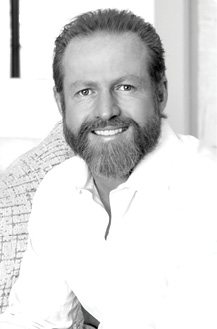
Founded / 2012
Top Executives / Jason Camper & Paul Gravette, Co-Owners & Co-CEOs
Products / Nutritional Health & Wellness
Created on a cloud-based platform, Le-Vel’s virtual nature is something its field has passionately touted since 2012. But in 2019, Le-Vel felt they were missing the essence of direct sales—the human element. Had they gone too virtual?
“It’s kind of funny, the irony of it all, but going into 2020, we were actually hyper-focused on more meetings and getting more of the human element involved,” says Jason Camper, Co-CEO/Founder.
So, when 2,000 of Le-Vel’s field gathered for an incentive trip in February 2020 at Riviera Maya, Mexico—just weeks before the pandemic—they huddled up 150-200 top performers and talked tough love about getting back to the human element in their business.
Coronavirus had other plans, however, and forced Le-Vel into a true 100 percent virtual environment. But Camper says, “That kind of round table—had we not had that in February—I’m not quite sure how the following month would have transpired.”
However, between March and the end of May, Camper says, “We saw our monthly revenue grow by $10 million. That’s pretty substantial. It hasn’t stayed there. We’ve seen a little of that subside, but overall, year-over-year, month-over-month, we’re still greater than where we were.”
But Camper’s not quick to assume that the pandemic was unequivocally the reason for any company’s growth or lack thereof. “I can say it had something to do with it, but I can’t say fully it was pandemic related. We’ve seen upcycles and downcycles in our business—where we do drop by this, and we do jump by that—since we started the company,” he says.
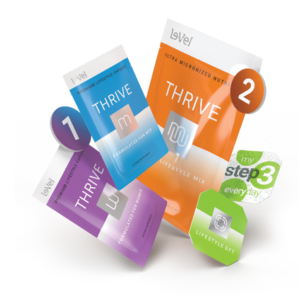
Skyrocketing sales may have happened for Le-Vel because people had more time to talk about and sell products during quarantine, health consciousness increased, or economic factors came into play. But Camper believes most meaningful was that February meeting. “We were ready to execute on the company whether there was a pandemic or not because everybody was hyper-focused.”
Duplication 101 is having everybody on the same page and beating the same drum, so the field is able to do what it needs to. They scrapped the human element plan and expanded their existing virtual model adding massive Zooming and online training.
Camper and co-founder Paul Gravette tried to do everything they could to check all the boxes for their field. “I was very visual and accessible through Zooms. I was saying no to nothing. Yes. Yes. Yes.” Camper remembers.
As much as Camper hates to admit it now because the world is “Zoomed out,” the video aspect of letting people see him and the rest of the corporate team as much as they could, even though it was virtual, was very meaningful. It built trust and laid a foundation that would not have otherwise been possible.
But Le-Vel’s 2020 success wasn’t as simple as executing a virtual business model. Sure, it played a part, but Camper points to leadership that’s committed to going to the next level, year over year over year despite a pandemic, despite virtual events or live events—is their secret sauce.
“You get people together who are inspired and empowered to go do something, and that’s how you move the needle. That’s how we started moving the needle in 2020,” Camper says.
There’s an almost “euphoric feeling” when everybody’s fired up about increased sales. “I like it more, what I see what it’s doing for the morale in the field versus what it’s doing for the company’s financials,” Camper says. Their top line grew as they discovered better ways to lead, teach and train.

But 2020 was chock full of distribution challenges, as a spring e-commerce boom and shuttered retail shops caused carrier overload and fulfillment bottlenecks.
“That in itself was bar none the biggest challenge of 2020 for us. If you had given me the option going into 2020, grow sales by $10 million a month or experience these types of shipping issues. I would have said, ‘I don’t want the growth. Just let me flawlessly execute shipping because I’m not going to potentially lose a consumer base that I’ve worked so hard to build up,’” Camper says.
With fulfillment time frames finally normalizing, Le-Vel is working to make it up to affected customers. They are also looking for ways to foster a strong human element while still being pinned into a virtual model by the pandemic.
“Once the vaccines and people in the world deem it okay to get back to events, we are absolutely going to go bonkers!” Camper says.
Meanwhile, they did gather this February in Cabo San Lucas to celebrate 2020 and renew their commitment to Le-Vel. “We gambled and had no idea how it was going to turn out. But the Hard Rock Hotel let us put on an incentive trip there. We had 2,000 people and the local testing laboratories. We tested 2,000 people and were able to put on an event,” Camper says.
Nature’s Sunshine
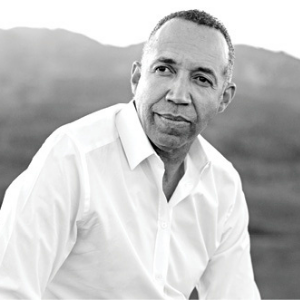
Founded / 1972
Top Executive / Terrence Moorehead, CEO
Products / Personal Care, Wellness, Cosmetics
With a worldwide listening tour, think-tank sessions and executive committee analysis behind them, Nature’s Sunshine embarked on a fast-track relaunch in 2019. By spring, CEO Terrence Moorehead says a new five-point global strategy was taking shape, and they spent the closing quarters that year filling in details.
Doubling distributors’ businesses—that was the premise underlying Nature’s Sunshine’s relaunch. They knew it would take brand work, work on the overall distributor and consumer experience, as well as building out digital capabilities and extending an already extensive lead in manufacturing and quality.
They didn’t want to choke on everything they were trying to accomplish, Moorehead remembers. But they implemented what they could early on, laying the building blocks for the rest of the strategy. They got the economics of the business right, made sure the P and L and balance sheets were moving in the right direction and slotted the right people in the right jobs at the right time doing the right things with the right motivations.
By their own design, Nature’s Sunshine was poised for renewal in 2020, but Moorehead says, “What we didn’t know about, of course, was COVID-19. That threw a wrench in a lot of different markets. It made us hesitate as to whether or not to pull the trigger on something like a new business model.”
Whatever their apprehensions, the major tenets of Nature’s Sunshine’s new strategy were both urgent and important. So, they muscled through, despite shattered plans for face-to-face experiences and an underlying wish they’d begun a decade sooner.
“Everyone believed in the strategy. Everyone knew what we had to do, and there was really no need to stop or put the brakes on. As a matter of fact, you could make an argument that we needed to try to accelerate things,” Moorehead says.
“We’d spent so much time on that, when the pandemic hit, and everyone had to start working remotely, instead of people being lost, everybody knew what their role was,” Moorehead said.
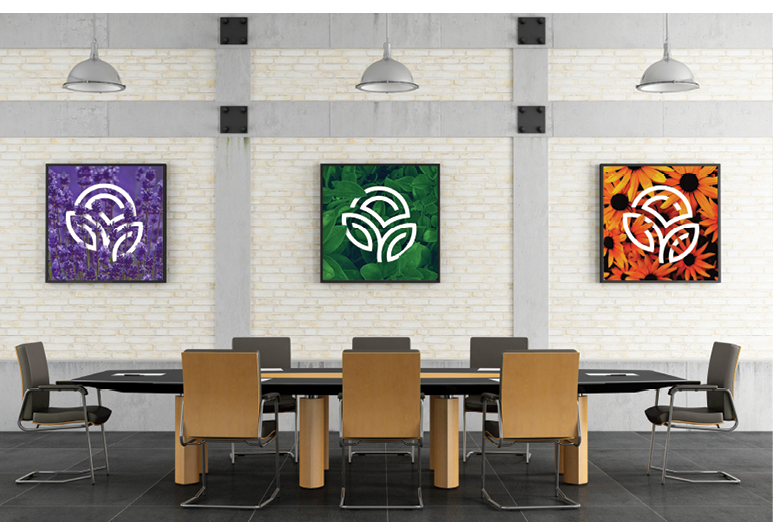
Forethought in management operations processes, as well as the previous year’s investment in a global, virtual communications platform, kept Nature’s Sunshine on track and allowed them to even move call centers to remote work.
“We felt confident. When you have the best team in the world and you have the best practitioners, we put out there what we believed they could handle,” Moorehead says.
Their effective communications strategies re-ignited awareness and long-dormant relationships. Knowing newness and change is absorbed at different rates, they recalibrated how best to bring everyone along, in some instances shifting to accommodate but not to compromise. Those efforts “elevated the level of activation across the board,” Moorehead says.
Their only path forward, thanks to the pandemic, was a virtual one. They used every tool available—Zoom calls, Zoom webinars, texts, emails, one-on-one phone calls, pre-recorded training modules, even animated training modules—to come at people frequently and in multiple dimensions.
Moorehead thinks in some ways, the circumstances of 2020 opened up people’s minds in the field and rise to the relaunch challenges. But the management team “would’ve walked through fire to make sure that our distributors were taken care of and that the company would be relaunched effectively,” he says.
“We certainly didn’t imagine that the results would be as positive as quickly,” Moorehead says.
After 20 years of declining sales, the company bested their record when Q4 2020 net sales increased 11 percent to a total of $101.7million, up from $91.7 million in 2019.
“It put us on this new trend line and new trajectory, where people really are taking a new interest in the brand and a new interest in their businesses, unlike we’ve ever seen before,” Moorehead says.
Relaunch is never a straight line to success, a message Nature’s Sunshine broadcasts widely to its sales field. Large-scale business changes create winners and losers, as well as emotional responses, while a company learns and fine-tunes the functionality of its creations.
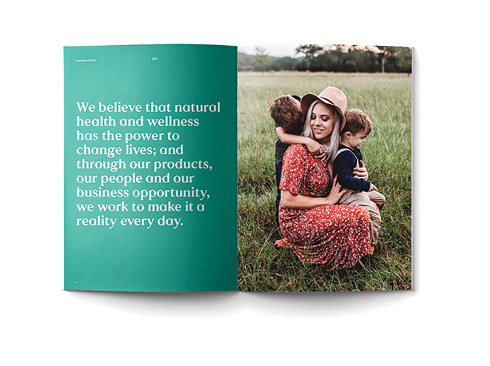
“The brilliance of the North American management team was managing the change day-to-day. That required a lead-up, sometimes daily meetings, weekly field meetings, partnering with distributors and consultants on idea generation, what’s working and what’s not working. But then the same level of intensity had to occur after the launch as well,” Moorehead says.
Change management and touch management augments what they believe is a groundbreaking business model and an industry-leading go-to-market approach. They have shifted messaging from relaunch training to aspirational business growth education, and along the way, picked up a lot of new people who are excited about what Nature’s Sunshine is all about in this new era.
Nearly 50 years encapsulating herbs in America, Nature’s Sunshine differentiates itself through its commitment to science, manufacturing, quality, testing and third-party accreditations that surpass industry leaders and norms, as well as its unique, omnichannel distribution network of herbalists, dieticians, homeopathic healers, and herbal retailers.
Moorehead says the company always maintains a growth posture and a certain level of optimism. It’s a growing market and more people are engaged in taking care of their health than ever before.
“We want to make sure that we are there to be a lead option for those consumers who are really serious about their health and want a product they can believe in, trust and know it’s going to deliver results for them,” Moorehead says.
Princess House
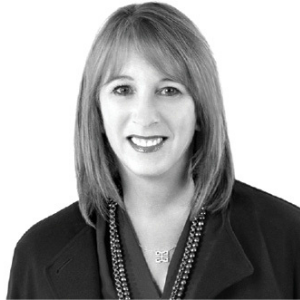
Founded / 1963
Top Executive / Lynne Coté, President & CEO
Products / Home Décor, Kitchenware, Food & Beverage, Wellness
In 2019, Princess House sales were in decline for the third year, and the company’s programs and communications strategies struggled to motivate or induce growth. Still, their discouraged field leaders remained loyal, and when three-months of evaluation wrapped at year’s end, Lynne Coté—part of the Board’s review—joined Princess House as president/CEO in January 2020.
Coté was at the helm for only eight weeks when the pandemic came calling, but it had been an introspective and constructive couple of months. Leadership re-organization began with clarification of roles and responsibilities, and they identified company strengths, weaknesses, current challenges and anticipated future ones. (The pandemic was not on their list.)
After redefining their mission and values, they got to work on strategy and tactics—tech enhancements, an innovative framework, improved training and tools, experiential opportunities, as well as leadership development, cultural connectivity and market expansion.
Then spring hit hard with lockdowns, transitioning to work from home and plummeting sales in the first weeks of the pandemic. Soon Princess House measured a first-quarter decline of 7 percent compared to 2019.
“Our discussions at the executive level were all about ACTION. What could we do that would encourage the field to try different things and to pivot to a digital environment?” Coté remembers.
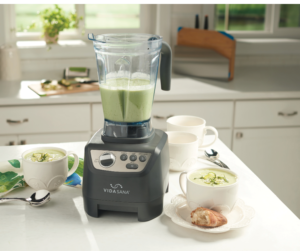
Fortunately, that deep dive Princess House took just months prior proved invaluable to creating opportunity through chaos. “In fact, that became our rally cry to the field that the time was NOW. Because we had the products people needed during the crisis, it was up to us to create the opportunity,” she says.
A shift to Zoom extended the reach of grounded Regional Sales Managers to train the field, let Coté get to know Boston area staff from her home in North Carolina, and opened a first-ever transparent line of communication with the field. They created deep discount promotions for April that utilized inventory. They stopped demotions, extended payment terms, and lengthened incentive selling periods.
“Our goal was to let the field know we had their backs, and together we were going to help each other continue and even grow our business. By the middle of April, we saw our sales begin to increase double digits,” Coté says.
Even as sales began to pivot in April, recruitment was nil. So, Princess House offered a limited time only, discounted entry fee in May, which grew their consultant base 50 percent. With the existing field selling well, the challenge became on-boarding a lot of people fast.
Coté says a good portion of the recruiting was done at the consultant level rather than the leader level. So, they made it simple for consultants to onboard new team members with a one-page document. It worked.
“We saw the activity rate of new consultants in May, and we knew that we were going to far exceed our expectations for 2020,” Coté says.
Laser-focused, Princess House doubled their business every single month from April forward, but Coté says, “The huge growth in our business was not easy on us or the field. We just did not have the inventory to support this growth.”

With 120-day lead times out of China, feeding inventory became their biggest challenge and was further complicated by the inability of UPS to support increased levels of service needed, especially on the West Coast. This reduced level of service put Princess House behind 12 weeks in shipping. “We were very nimble though in setting up FedEx, USPS, and even a private delivery carrier. We even set up a pop-up will-call center for leaders to come and pick up their customers’ orders,” Coté says.
Princess House’s trajectory continues upward in 2021 following a 2020 renewal that Coté says “completely changed the company.” Inventory purchase levels are up, and warehousing has expanded by 200,000 square feet. While the L.A. port situation and lack of trucking carriers still make logistics difficult, Princess House products remain relevant in the marketplace. “The trend to home cooking is not going away any time soon,” Coté says.
Looking back now, Coté believes the key to their renewal was the combination of supporting the field with tools they could use, transparent communication that made them feel like partners, and a leadership team that almost immediately became a high-performance executive team equipped to create opportunity out of chaos.
“I firmly believe the company has a renewed sense of purpose after recent years of declining results. I heard when I was consulting in December that there was no more growth to be had in the current market—I do not believe that is the thought now,” Coté says.
Prüvit
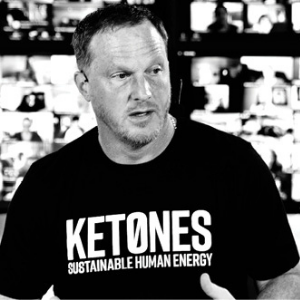
Founded / 2015
Top Executive / Brian Underwood, Founder & CEO
Products / Health & Wellness
Events—live, in-person events—create the heartbeat and culture of Prüvit. So, it was only logical that pre-planning for 2020 contained a huge dose of events, as the company’s excitement grew about expanding into more international markets; then, the world slammed shut in March.
“We were locked down, and the struggle came from uncertainty of knowing if or when things would reopen,” CEO Brian Underwood says.
Because Prüvit offers a premium product, they had to ask themselves a tough question. “What if people’s fear causes them to come off of autoship because they think it’s just a luxury in their lives?”
Despite their firm belief that their product is a necessity in the lives of their customers, due diligence dictated that Prüvit’s C-suite float all sorts of potential worst-case scenarios last spring; then, they prepped for them.
“We immediately took precautions and looked at how we could create a down-sell if needed,” Underwood says.
But they never had to use it.
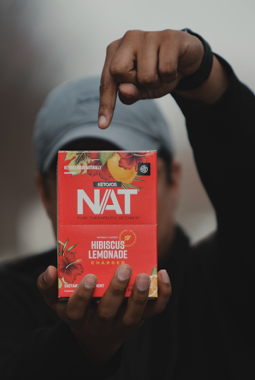
Instead, they dealt with a brand-new reality and came out shining.
“One of the greatest things about our company is that our core philosophy is all about being truly adaptable. Once the pandemic hit, we were used to being a speedboat in the water anyway. Even in just our marketing feel, we would shift course very quickly,” Underwood says.
As their internal team transitioned to remote work, they kept the same harried pace that was their norm and morphed this new coronavirus reality into a huge opportunity.
They stepped up, swallowed hard and did what they had to do—canceled all in-person events. “We just wrote it off really early and leaned heavily into virtual settings,” Underwood says.
They carried forward strengths from 2019, like consistent outcomes and a focus on creating similar feelings of connection with the community and re-anchoring people to Prüvit’s vision and mission.
“Getting that emotional connection involved is really important,” Underwood says.
With great pleasure, they watched Prüvit’s volume rise thanks to the amount of education the company created. They shifted to high-production virtual events delivered at increased frequencies and introduced new products, which also increased the frequency of new experiences for consumers.
“Our field outperformed themselves. We did a lot more of what we were already doing, which included driving experiences and creating events for them—whether it was new flavor drops, sales or training,” Underwood says.
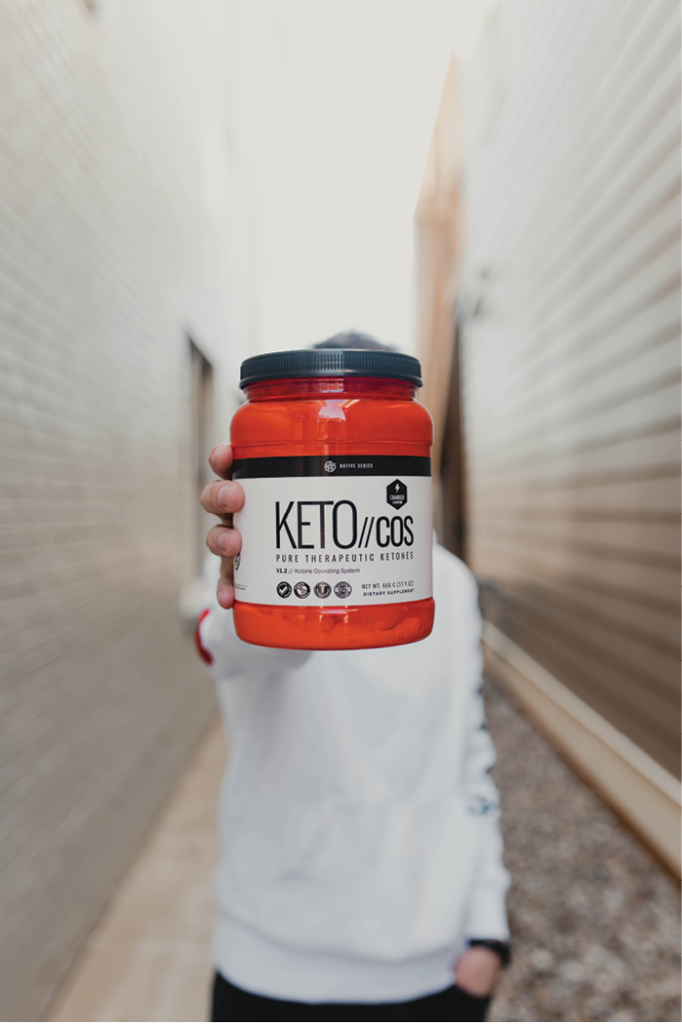
“The surprise for us was that our 2020 sales grew tremendously in the domestic U.S., simply because people had an urgency to find a plan B, and we leaned into that,” Underwood says.
Of course, there were disappointments like the inability to meet international growth projections, but stagnation had everything to do with the pandemic.
“As we were opening up new international markets, we met challenges by increasing communication with the international leaders who had already created the demand in those markets. Fortunately, we were able to create some stability in those sales, even in the pre-pre-launch stage. Our leadership got resourceful to maintain the market and use it to their advantage,” Underwood says.
Underwood thinks that’s the most exciting element to 2021—picking back up that international expansion and running with it.
For Prüvit, 2020 brought a renewal of sales growth, as well as added perspective because it forced everyone to slow down a bit, whether they wanted to or not.
“It gave everyone an opportunity to reset and refresh and also look at long-term effects of how to create more efficiency. I think we will see that industry-wide,” Underwood says.
Virtual events, for example—he doesn’t see them going away anytime soon. “If done right, you can get just as much impact. The challenge moving forward is to maintain those efficiencies while also replicating the feel of live experiences and human connection as well,” Underwood says.
Total Life Changes
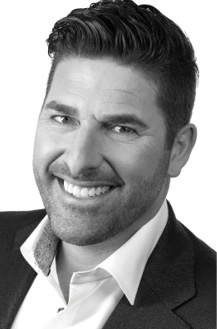
Founded / 2003
Top Executives / Jack Fallon, CVO & John Licari, COO
Products / Health & Wellness
“We were already experiencing quick momentum in quarters three and four in 2019, which carried over into 2020. We were very optimistic that we would see 2020 sales increase by 20 to 30 percent or even higher than the previous year,” recalls John Licari, Total Life Changes, chief operating officer.
What TLC didn’t expect was the lightning speed at which those numbers would arrive in 2020.
Essentially, TLC planning for 2020 called for more of the same—aligning and expanding goals to continue training and educating new and existing Life Changers on the benefits of following one duplicatable system that the masses could understand and implement quickly.
TLC intended to continue monthly events throughout 2020 in the USA, Europe, FSU, and Latin America that focused on sampling products, follow-up, and conversions that leveraged their 10-5-2 onboarding system and strengthened their duplication model.
Already in place was a “retail-to-recruit” sales system aimed at generating brand-new customers, and 2020’s plan to develop four samples in four languages would enhance face-to-face sampling and bring convenient, sampling order/delivery to those using TLC’s mobile app.
There was no real predicting what sales and business would look like for 2020 after the pandemic overtook normality, but Licari says TLC was pleasantly surprised as they continued their positive momentum.
“We were not aware that this was going to happen so quickly. We realized that what we were going through was an opportunity, but at the same time, we faced significant challenges. We were not prepared to handle the massive call volume, the increase in orders, and the incredible interest in joining TLC as an independent representative,” Licari says.
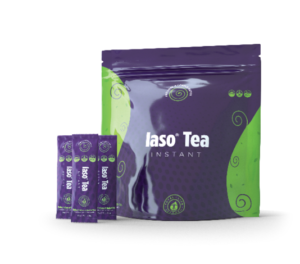
To cope with the pandemic changes, TLC shifted to daily, consistent communication with the sales field via social media channels to provide updates and hope, improved their onboarding process and upgraded their phone system to include more robust callback options and self-help features aimed at efficiency.
And as they rapidly overshot pre-pandemic sales projections for the year, every department from the top down worked side-by-side to keep customer service and warehouse processing running smoothly despite increased volumes of orders.
Adding warehouse space, scaling warehouse staff, accommodating packaging changes necessary for vendor product replacements, and implementing daily pickups from their main warehouses so orders could be shipped ASAP—all this was key to ensuring TLC’s performance went beyond expectations.
It took people to get it all done—the internal support from TLC’s executive team and reaching out to local communities for new employees. They created a formal Human Resources department for the first time as they hired more and more people.
Field numbers were simultaneously escalating, and Licari says, “Our biggest challenge was onboarding a ton of new people and continuing to serve the existing people at the high level that they were used to. We had to stay fired up and committed to supporting everything that was happening, and never giving up and staying positive.”
Thinking back on the rapidly accelerated growth of 2020, Licari says, “Whatever percentage we were set up to accept, we went above and beyond to make sure we could process even more than that because we knew this was an opportunity that we may never get again.”
TLC is taking steps now to sustain that growth and continue 2020’s renewal twofold. “We have not slowed down on improving our technology; we are currently being onboarded with Salesforce and new retail e-commerce and back-office experiences,” Licari says. They’ve also committed to a more rigorous schedule of communication, broadcasts, social media engagement and training.

Licari believes that TLC cemented its place in the health and wellness market by working harder during the past year and observing consumer behavior to maximize reach and continue to keep the positive momentum. They beat the odds and proved that there isn’t anything they can’t do with loyal and committed staff. And they grew to appreciate, on an even greater scale, what Licari identifies as the company’s greatest asset—their culture.
“And when that was taken away from us [due to the pandemic restrictions], that was a challenge because we were used to being this close-knit family that shared a lot of time. We learned that our culture here is very special, and when we can’t be together, it’s hard for many of us to deal with that,” Licari says.
USANA
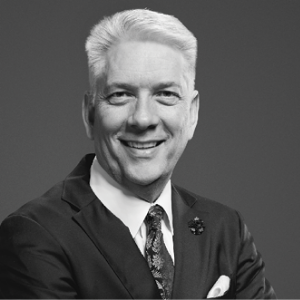
Founded / 1992
Top Executive / Kevin Guest, CEO
Products / Health & Wellness, Personal Care, Cosmetics
As USANA moved into 2020, the year started strong. A surprise, 100-day nutritional supplement review by the Chinese government had slowed their business in 2019. Still, they realigned their operational spend, invested in IT infrastructure, devised a new road map focusing on new categories, and started building momentum in their non-China markets.
By late 2019, business was normalizing and in the first-quarter 2020, CEO Kevin Guest leap-frogged internationally—China, Korea, Mexico, The Philippines, Italy and Romania.
“I was actually in China when news of the pandemic there began to break, and our team began to contingency plan in late January and early February for this [COVID] to have a more wide-ranging impact,” Guest says.
Guest found himself one step ahead of country lockdowns amid pandemic and in a race to get back to the U.S.
They were fortunate to learn from their China and Korea operations early in 2020, which helped the U.S. team act more swiftly once the health threat arrived. “Still, I don’t think anyone could have predicted the magnitude or speed of what we’d face here and in each of our markets around the world,” Guest says.
USANA maintained a crisis communications and action plan, so that’s where they started. They didn’t overanalyze, instead they got to work and created global COVID task forces with authority to move forward, bypassing bureaucracy. Daily shifts and changes in-country could be life and death. USANA had to be a very nimble global organization.
“The COVID task force approach helped us get away from the silos and helped the efficiency of our decision-making processes tremendously,” Guest says. “I delegated a lot of the decision making to other officers in the company and other general managers around the world, so that they could feel empowered to make these huge decisions and follow through on them. And I’m so glad that I did.”
Prioritizing employee and customer safety, USANA immediately purchased employee laptops and kicked into a work-from-home environment. They even set firm dates to revisit the policy, which gave employees clarity and security about planning for childcare.

Supply chain concerns mounted as demand for health products grew. They increased inventory load to assure continued manufacturing and sought contingency suppliers of raw materials and ingredients. They found sources equal in quality and less expensive.
“This time last year was all-hands-on-deck, and we always seemed to be a few steps ahead of what was going on, fortunately,” Guest says.
“What happened for us in 2020—because of where we were in 2019—accelerated our strategic objectives versus disrupting them, which was very, very helpful for us as a company,” Guest says.
With a whole host of predictive analytics at their disposal, USANA knew momentum was on their side as early as Q4 2019. Trends indicated markets outside China were strengthening too. When Q1 2020 hit—before the full effect of the pandemic—they knew where they were headed from a sales/momentum perspective. After Q2 2020, USANA felt more confident, and the publicly-traded company raised its financial outlook to the street.
“From that point on, momentum continued to build, our sales results accelerated, and we ultimately delivered $1.135 billion in sales for the year, or 7 percent sales growth compared to 2019, which to me is an unbelievable year, especially given the continued challenges from the pandemic,” Guest says.
There were curveballs, like the effects of the U.S. banning the WeChat platform used so widely in China, and the necessity to shift 19 remote in-person training centers in China to 100 percent online. And some pandemic related challenges linger—as ships still languish offshore due to customs slowdowns in some ports.
But the pandemic highlighted USANA’s strengths and has driven positive change. They launched and accelerated many global digital initiatives in 2020, including an improved mobile platform, expanded payment options, quick and simple product education, ways to capture and respond to consumer voices, improved SEO, and easier ways to share USANA experiences with others.
The ability of USANA’s field to utilize these tools and move to more social media-focused selling, to take advantage of additional company-sponsored promotions and incentives did a lot to drive the company’s results.
“For us, we, fortunately, have a very strong business with a lot of customers that love our products, and we had that base—regardless of what happened at the beginning of 2019—that carried us through this unprecedented year of 2020,” Guest says.
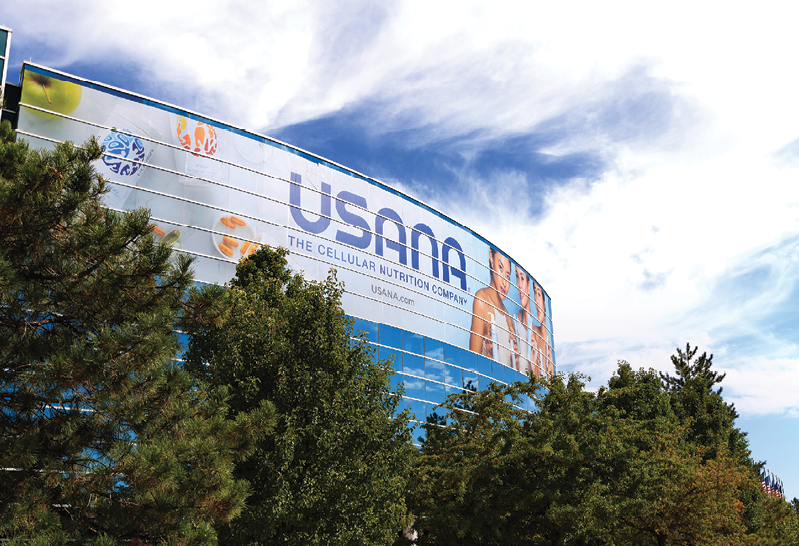
Sustaining a growth trajectory in 2021 will include production and launch of a new health drink line, as well as looking at international expansion as a continued growth strategy. But meeting new challenges, like even more intense cybersecurity and normalizing an in-person and digital hybrid event management strategy, is vital too.
Looking back, Guest is grateful for USANA’s culture and the core values of its employees that had, in the normal course of business, intuitively created systems that served them so well in crisis. That culture, he says, is too valuable to lose and with more than 100 new employees, who have never come to work in USANA’s world headquarters and he has never met or seen personally, Guest worries.
“I’m glad we had this great culture which got us through really, really potentially challenging times, but my worry now going into 2021 is, ‘How do I, as the CEO of the company, how do I maintain that culture on a global basis that took us 28 years to create?’ ” Guest asks.
He, like so many other CEOs, is not alone in this worry.
From the May 2021 issue of Direct Selling News magazine.


